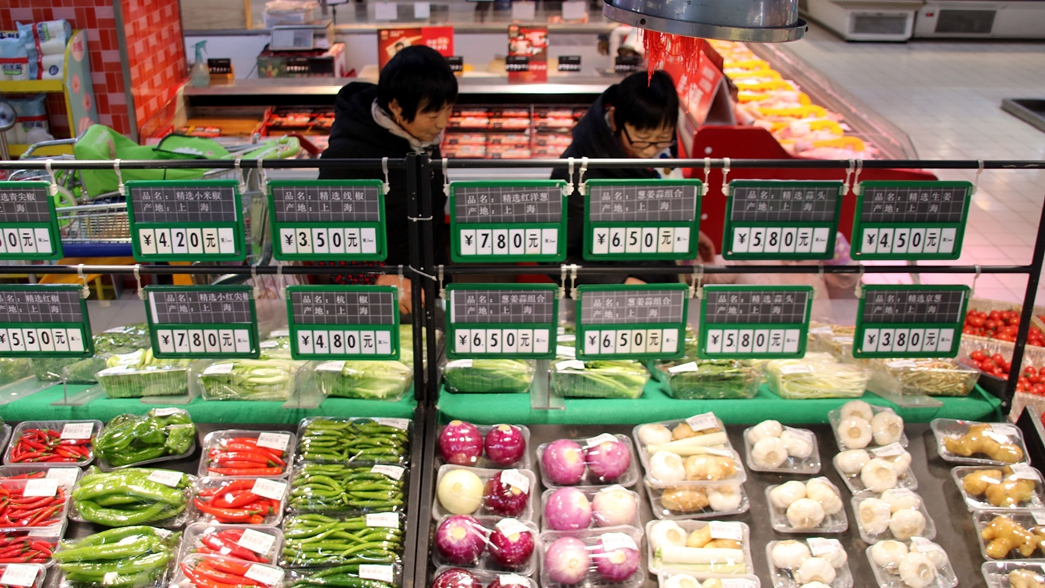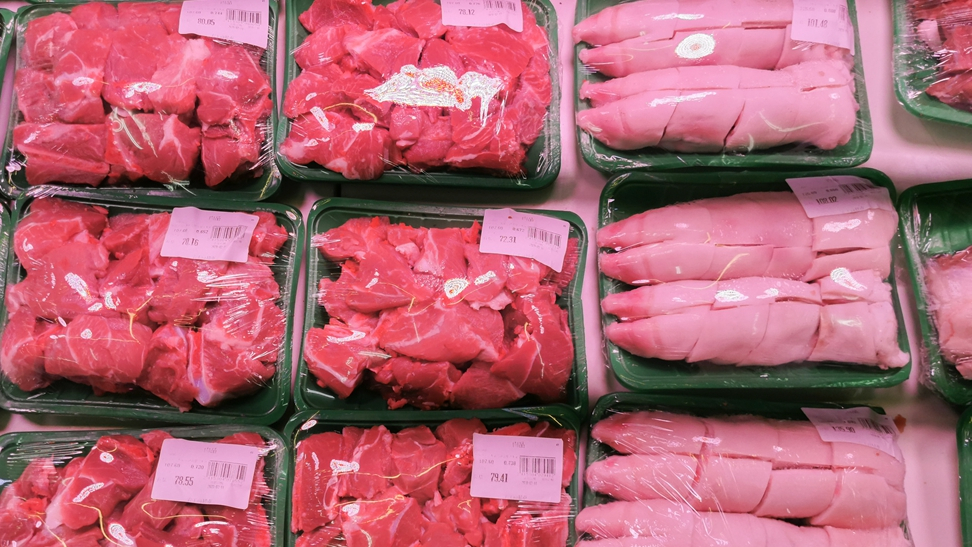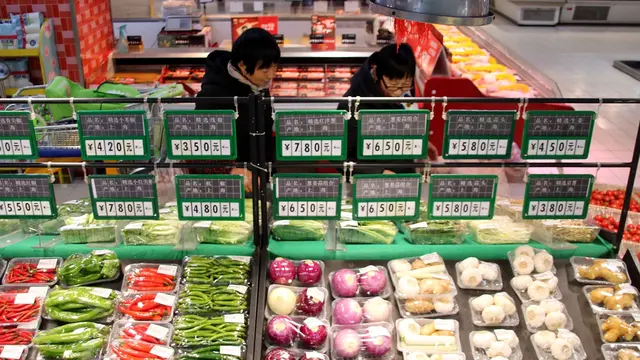
People shop at a supermarket in Suzhou, Zhejiang Province. /VCG
China's circulation enterprises have steadily resumed operation with sufficient market supply and lower retail prices of daily necessities, an official with the Ministry of Commerce (MOFCOM) said on Saturday.
Major wholesale markets, chain stores and e-commerce platforms have all resumed business and seen recovered turnover. As of Friday, 99.4 percent of wholesale markets of agricultural products had reopened, and 97.6 percent of business owners begin operation, said Wang Bin, an MOFCOM official, at a press conference.
Wang said 99.5 percent of major chain stores and 95.4 percent of branded convenience stores have resumed business with sales surpassing the same period last year. And 95.8 percent of department storesreopened, 35 percentage points higher compared that that in the end of February, with sales recovering to 50 percent of the same period last year.
Wang also said 80 percent of catering enterprises, 60 percent of accommodation business and 40 percent of housekeeping business have seen sales recover to 35 percent of the same period last year.

Packed pork for sale in a supermarket in Shanghai, February 12. /VCG
Prices of daily necessities slipped
Prices of daily necessities like grain, oil, meat, poultry, eggs, vegetables have dropped since March. On March 27, for example, the wholesale price for vegetables fell 16.5 percent compared than the end of February.
Pork prices slipped 7.4 percent compared than the peak in mid-February.
Meanwhile, Wang noted that the circulation enterprises are still facing problems. People' consumption enthusiasm is still picking up slowly and they are more cautious when going out. The circulation enterprises resumed business, but the sales recovery was uneven. Also, restrictions on inter-provincial personnel movements are to be fully lifted.
Some companies also said that they are still facing a shortage of funds and staff, and they are worried of rising costs due to the coronavirus epidemic
 简体中文
简体中文

